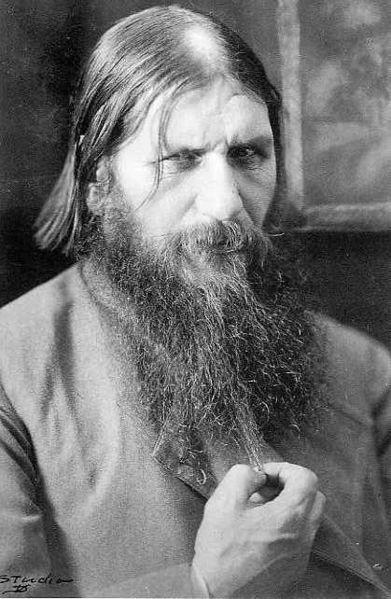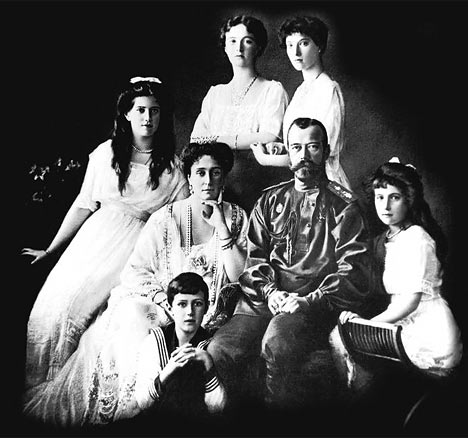Home
Grigori Rasputin
I was initially intrigued by Rasputin last year in my World History class. I had heard of him before but I had never really understood his significance to history or the legends that surround him. We had been learning about the beginning of World War I and the royal family of Imperial Russia and it turned out that Rasputin played a pretty important role in the royal family.
Tsar Nicholas II and his wife Alexandra Fyodorvna had five children, the youngest of which was affected with Haemophilia B, a disease which causes blood not to clot. Because of his illness, he was "healed" by the Russian mystic, Grigori Rasputin. Rasputin has been seen as a saintly mystic, visionary, healer, prophet, but also as a religious charlatan who helped to discredit the tsarist government which led to the fall of the Romanov dynasty.
The Life of Rasputin
Rasputin was born a peasant in the small village of Pokrovskoye, along the Tura River in the Tobolsk guberniya (now Tyumen Oblast) in Siberia. The date of his birth remained in doubt for some time and was estimated sometime between 1863 and 1873.Recently, new documents surfaced revealing Rasputin's birth date as 10 January 1869 O.S. (equivalent to 22 January 1869 N.S.)

Rasputin was wandering as a pilgrim in Siberia when he heard reports of Tsarevich Alexei's illness. It was not publicly known in 1904 that Alexei had haemophilia, a disease that was widespread among European royalty descended from the British Queen Victoria, who was Alexei's great-grandmother. When doctors could not help Alexei, the Tsaritsa looked everywhere for help, ultimately turning to her best friend, Anna Vyrubova, to secure the help of the charismatic peasant healer Rasputin in 1905. He was said to possess the ability to heal through prayer and was indeed able to give the boy some relief, in spite of the doctors' prediction that he would die. Every time the boy had an injury which caused him internal or external bleeding, the Tsaritsa called on Rasputin, and the Tsarevich subsequently got better.[citation needed] This made it appear that Rasputin was effectively healing him.
Rasputin soon became a controversial figure, becoming involved in a paradigm of sharp political struggle involving monarchist, anti-monarchist, revolutionary and other political forces and interests. He was accused by many eminent persons of various misdeeds, ranging from an unrestricted sexual life (including raping a nun) to undue political domination over the royal family.

The details of the killing given by Felix Yusupov have never stood up to scrutiny. He changed his account several times; the statement given to the St. Petersburg police on December 16, 1916, the accounts given whilst in exile in the Crimea in 1917, his 1927 book, and, finally, the accounts given, under oath, to libel juries in 1934 and 1965 all differ to some extent, and until recently no other credible, evidence-based theories have been available.
Pictures of a dead Rasputin can be found here (Sorry, I wasn't about to put dead bodies on my webpage.)